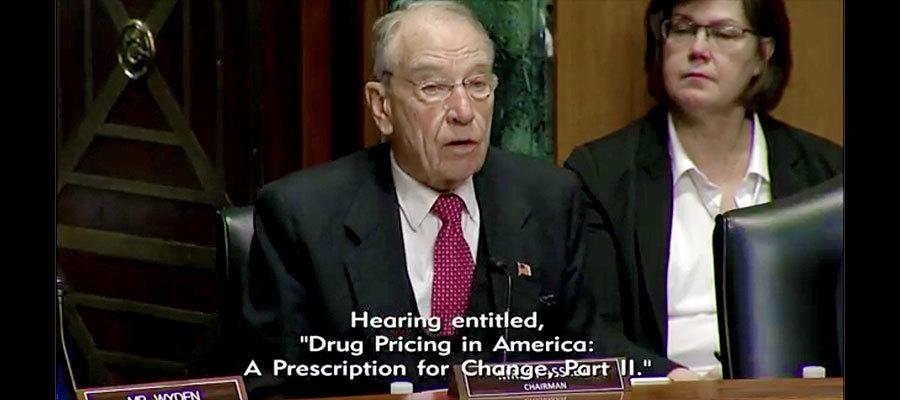Senate Finance Committee presses drug companies for price solutions

The Senate Finance Committee today held the second in a planned series of bipartisan hearings on high prescription drug prices, which featured executives from drug companies AbbVie, AstraZeneca, Bristol-Myers Squibb, Johnson & Johnson, Merck, Pfizer and Sanofi.
Committee Chairman Charles Grassley, R-Iowa, said, “Members of Congress are sick and tired of the blame game … The American people deserve straight answers and real solutions.” Ranking Member Ron Wyden, D-Ore., said, “It is long past time to drop the excuses and take concrete action to make medicine in America more affordable.” Among other comments, Sen. Tom Carper, D-Del., called on the industry to eliminate rebates to pharmacy benefit managers, support value-based payment models and increase transparency.
“We thank Chairman Grassley, Ranking Member Wyden and all the members of the committee for their commitment to tackle drug prices in the 116th Congress and for asking tough questions to hold Big Pharma accountable,” said Lauren Aronson, executive director of the Campaign for Sustainable Rx Pricing, of which the AHA is a founding member. “Today was Big Pharma’s Big Tobacco moment where it became crystal clear the status quo is unacceptable to policymakers and the American people. It is now incumbent on lawmakers to translate the momentum for change into concrete, market-based solutions to crack down on the anti-competitive and price gouging tactics of Big Pharma, in order to bring down the price of prescription drugs.”
During a telebriefing yesterday for news media, leaders from the AHA, American Academy of Family Physicians and America’s Health Insurance Plans also emphasized the need for Congress to address the continuing rise in drug prices, highlighted in a recent report prepared by NORC at the University of Chicago for the AHA, Federation of American Hospitals and American Society of Health-System Pharmacists. “The skyrocketing costs of drugs continues to dwarf the overall growth in spending on health care, as well as specific services, such as hospital and physician care,” said Erik Rasmussen, AHA’s vice president of government affairs.
AHA has recommended a number of policy solutions to restrain drug prices, from addressing anticompetitive actions by brand-name drug manufacturers to speeding up generic drug approvals and passing the CREATES Act.

